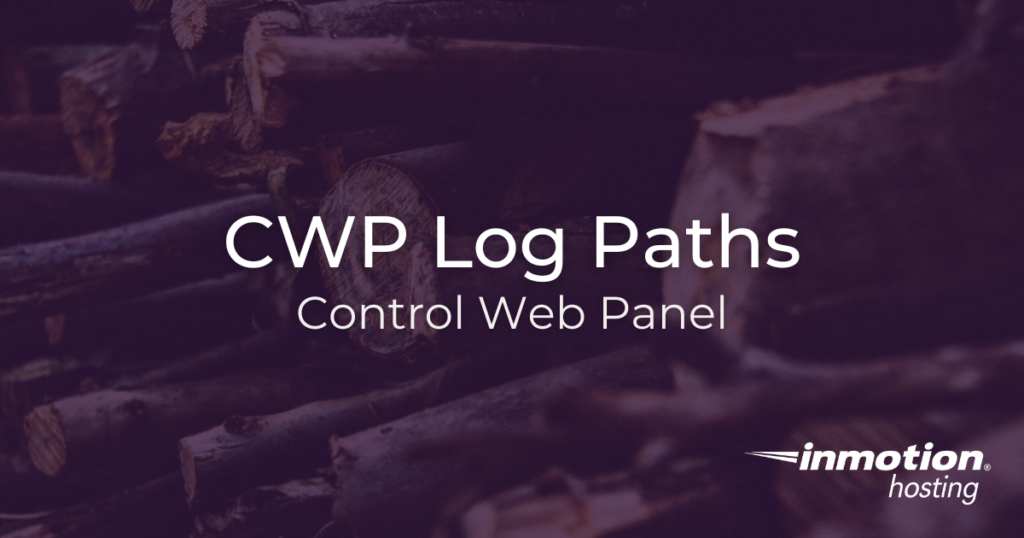Table of Contents

Logs are essential for server management, providing detailed records of activities and events that occur on your server. In Control Web Panel (CWP), logs are crucial for diagnosing issues, monitoring system performance, and ensuring security. This article provides a comprehensive guide to the log paths in CWP, helping you locate and understand the various logs available.
- Understanding Log Files
- System Logs
- Apache Logs
- Nginx Logs
- Mail Logs
- CWP-Specific Logs
- MySQL/MariaDB Logs
- SSL Let’s Encrypt Logs
- Conclusion
Understanding Log Files
Log files are records of events and messages generated by your server’s operating system, services, and applications. They include information on errors, access attempts, system warnings, and more. By regularly reviewing these logs, administrators can troubleshoot issues, enhance security, and maintain optimal server performance.
System Logs
Logs from the system itself, services, and various applications running on the system are located within /var/log. Examples of logs located in this directory include:
/var/log/messages
- Purpose: General system log
- Information it contains: System messages, warnings, errors, FTP, BIND/Named
/var/log/secure
- Purpose: Information related to authentication and authorization.
- Information it contains: Authentication logs, login attempts, SSH
/var/log/lfd.log
- Purpose: CSF & LFD Firewall log
- Information it contains: Failed login attempts, IP addresses that have been blocked by CSF
/var/log/cwp_client_login.log
- Purpose: Admin login log
- Information it contains: Failed and successful logins to CWP Admin Panel
Apache Logs
The logs for Apache are located in /usr/local/apache/logs (main logs) and /usr/local/apache/domlogs (per domain). Examples of logs in this directory include:
/usr/local/apache/logs/access_log
- Purpose: Apache access log
- Information it contains: HTTP requests to the web server
/usr/local/apache/logs/error_log
- Purpose: Apache error log
- Information it contains: Server errors, warnings
/usr/local/apache/domlogs/$DOMAIN.COM.error.log
Replace $DOMAIN.COM with the actual domain name
- Purpose: Domain-specific error log
- Information it contains: Errors thrown by the website/application, Mod Security errors, SSL warnings/errors
Nginx Logs (if applicable)
The logs for Nginx are located within /var/log/nginx. Examples of logs within this directory include:
/var/log/nginx/access.log
- Purpose: Nginx access log
- Information it contains: Requests processed by Nginx
/var/log/nginx/error.log
- Purpose: Nginx error log
- Information it contains: Errors encountered by Nginx
Mail Logs
/var/log/maillog
- Purpose: Mail server log
- Information it contains: Email transactions, SMTP, delivery issues
/var/log/dovecot.log
- Purpose: Dovecot error log
- Information it contains: Warning and error messages for IMAP/POP3 connections for Dovecot
/var/log/dovecot-info.log
- Purpose: Dovecot information log
- Information it contains: Informative messages such as failed and successful logins for IMAP/POP3 connections for Dovecot
CWP-Specific Logs
CWP-specific server and server services logs are located in usr/local/cwpsrv/logs/ and /usr/local/cwp/php*/var/log/. Example logs located in these directories include:
/usr/local/cwpsrv/logs/error_log
- Purpose: CWP web server error log
- Information it contains: Errors related to the CWP interface
/usr/local/cwpsrv/logs/access_log
- Purpose: CWP web server access log
- Information it contains: Access records for the CWP interface
/usr/local/cwpsrv/var/services/roundcube/logs/
- Purpose: Roundcube log directory
- Information it contains: Roundcube mail transactions, failed logins
MySQL/MariaDB Logs
/var/lib/mysql/$HOSTNAME.err
Replace $HOSTNAME with the server’s actual hostname
- Purpose: MySQL error log
- Information it contains: Root causes for MySQL/MariaDB errors
SSL Let’s Encrypt Logs
/var/log/cwp/autossl.log
- Purpose: AutoSSL log
- Information it contains: All transactions performed by AutoSSL, including installation and removal of AutoSSLs.
/root/.acme.sh/acme.sh.log
- Purpose: ACME.sh log
- Information it contains: Output from the
acme.shLet’s Encrypt shell script that is used to issue and renew free certificates automatically.
Conclusion
Understanding and managing log files in CWP is essential for maintaining server health and security. By regularly monitoring logs, you can diagnose issues promptly and ensure your server operates smoothly.
Upgrade to VPS Hosting for Peak Performance
Upgrade to InMotion VPS Hosting today for top-notch performance, security, and flexibility, and save up to $2,412 – a faster, stronger hosting solution is just a click away!
SSD Storage
High-Availability
Ironclad Security
Premium Support


Here is a complete open-source solution which might be of interest – Apache Log Parser and Data Normalization Application
https://github.com/WillTheFarmer/ApacheLogs2MySQL
Imports Apache Access & Error logs into MySQL Schema of tables, functions & views designed to normalize data. Consolidate logs from multiple Servers and unlimited Domains with audit trail & error logging.
Merry Christmas!
Will